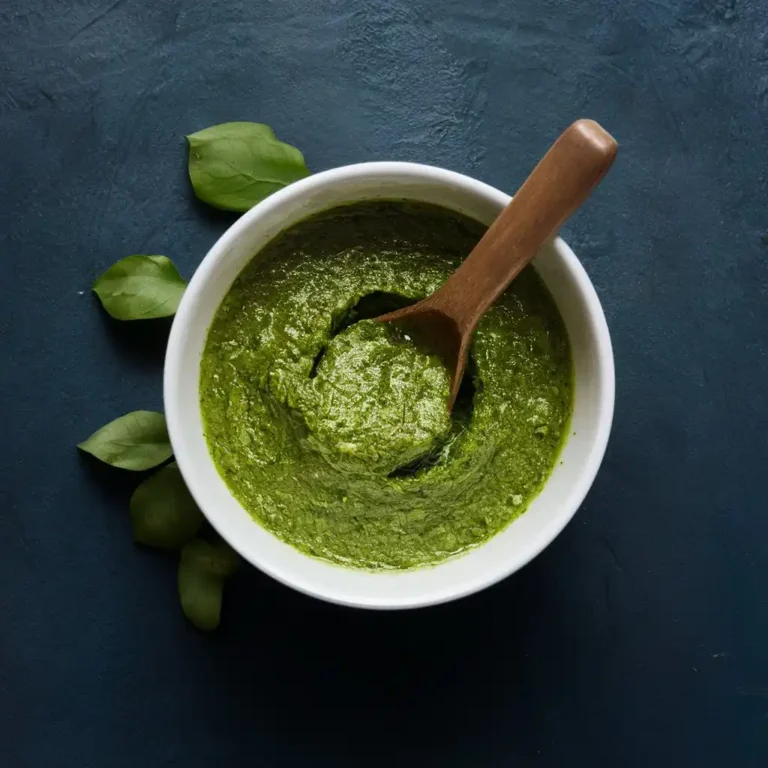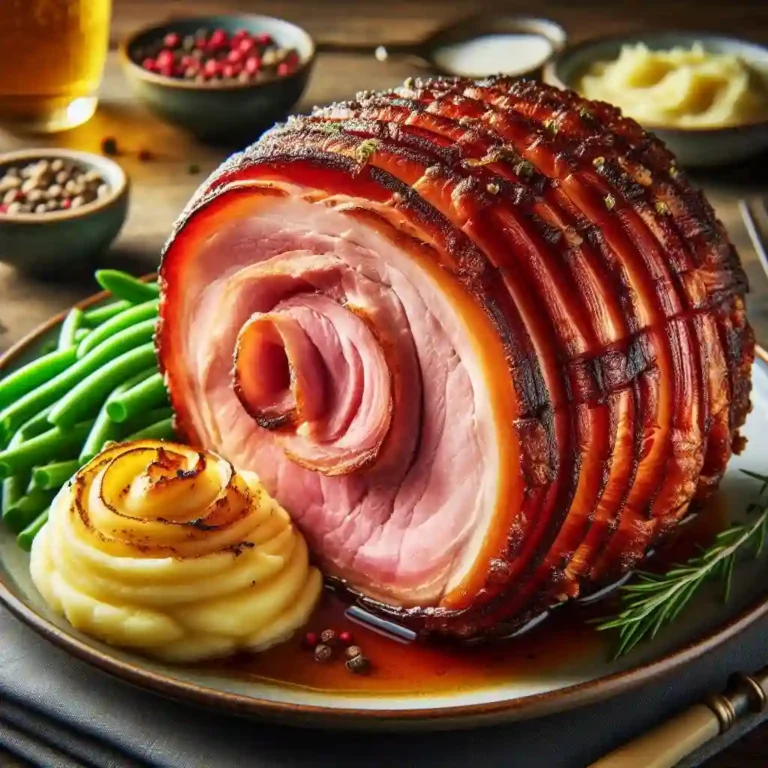How Long Can Grapes Sit Out Before Going Bad? Explained
Fresh grapes are a delicious and healthy snack, but have you ever wondered how long they can sit out at room temperature before they start to spoil?
Whether you’re a busy bee on-the-go or a parent trying to keep snacks fresh for your little ones, understanding the shelf life of grapes is crucial to avoiding waste and ensuring food safety.
In this article, we’ll dive into the world of grape storage and explore how long grapes can sit out before going bad, so you can enjoy your favorite fruit with confidence.
How Long Can Grapes Sit Out? Answered

Room Temperature (68°F – 72°F / 20°C – 22°C)
- 1-2 days: Grapes will remain fresh and safe to eat, but may start to soften and lose some of their crunch.
- 2-3 days: Grapes will start to deteriorate rapidly, becoming soft, mushy, and developing off-flavors.
- 3+ days: Grapes will likely be spoiled, moldy, and unsafe to eat.
Refrigerated (32°F – 40°F / 0°C – 4°C)
- 1-2 weeks: Grapes will remain fresh and crunchy, with minimal loss of quality.
- 2-4 weeks: Grapes will start to soften and lose some of their flavor, but remain safe to eat.
Freezer (-18°C / 0°F)
- 6-12 months: Grapes will remain frozen and safe to eat, with minimal loss of quality.
Tips for Storing Grapes:
- Store grapes in a cool, dry place away from direct sunlight.
- Keep grapes away from strong-smelling foods, as they can absorb odors easily.
- Wash grapes just before eating, as excess moisture can cause them to spoil faster.
- Consider freezing grapes to extend their shelf life.
The Shelf Life of Grapes: What You Need to Know

Grapes are a delicate fruit that require careful handling and storage to maintain their freshness and quality. The shelf life of grapes depends on several factors, including the variety, ripeness, storage conditions, and handling practices.
Factors Affecting Grape Shelf Life
- Variety: Different grape varieties have varying shelf lives. For example, table grapes like Thompson Seedless and Flame Seedless tend to have a longer shelf life than wine grapes like Chardonnay and Cabernet Sauvignon.
- Ripeness: Grapes that are picked at the optimal ripeness will generally have a longer shelf life than those that are picked too early or too late.
- Storage Conditions: Grapes stored in a cool, dry place with good air circulation will last longer than those exposed to heat, humidity, or moisture.
- Handling Practices: Grapes that are handled gently and minimally will last longer than those that are bruised, crushed, or damaged during handling.
Typical Shelf Life of Grapes
- Room Temperature: 1-2 days
- Refrigerated: 1-2 weeks
- Frozen: 6-12 months
Tips for Extending Grape Shelf Life
- Store grapes in a breathable container, such as a paper bag or mesh bag, to maintain air circulation.
- Keep grapes away from strong-smelling foods, as they can absorb odors easily.
- Avoid washing grapes before storing, as excess moisture can cause them to spoil faster.
- Consider freezing grapes to extend their shelf life.
Room Temperature Storage: How Long Can Grapes Sit Out?

Storing grapes at room temperature is a convenient option, but it’s essential to know how long they can sit out before they start to spoil. The shelf life of grapes at room temperature depends on various factors, including the ripeness of the grapes, the storage conditions, and the handling practices.
How Long Can Grapes Sit Out?
- 1-2 days: Grapes will remain fresh and safe to eat, but may start to soften and lose some of their crunch.
- 2-3 days: Grapes will start to deteriorate rapidly, becoming soft, mushy, and developing off-flavors.
- 3+ days: Grapes will likely be spoiled, moldy, and unsafe to eat.
Factors Affecting Grape Spoilage at Room Temperature
- Temperature: Grapes stored at room temperature (around 68°F – 72°F or 20°C – 22°C) will spoil faster than those stored at cooler temperatures.
- Humidity: High humidity can cause grapes to spoil faster, as moisture can lead to mold growth.
- Light: Direct sunlight can cause grapes to spoil faster, as it can stimulate the growth of bacteria and mold.
Tips for Storing Grapes at Room Temperature
- Store grapes in a cool, dry place away from direct sunlight.
- Keep grapes away from strong-smelling foods, as they can absorb odors easily.
- Check on grapes regularly to remove any spoiled or moldy grapes, as they can affect the quality of the remaining grapes.
The Effects of Temperature on Grape Spoilage

Temperature plays a significant role in grape spoilage. Grapes are sensitive to temperature fluctuations, and even slight changes can affect their quality and shelf life. Understanding the effects of temperature on grape spoilage can help you store grapes optimally and extend their freshness.
Temperature Ranges and Grape Spoilage
- Room Temperature (68°F – 72°F / 20°C – 22°C): Grapes stored at room temperature will spoil faster, typically within 1-3 days.
- Cool Temperature (50°F – 60°F / 10°C – 15°C): Grapes stored at a cool temperature will spoil slower, typically within 5-7 days.
- Refrigeration (32°F – 40°F / 0°C – 4°C): Grapes stored in the refrigerator will spoil even slower, typically within 1-2 weeks.
- Freezing (-18°C / 0°F): Grapes stored in the freezer will remain frozen and safe to eat for several months.
How Temperature Affects Grape Spoilage
- Microbial Growth: Temperature affects the growth rate of microorganisms, such as bacteria and mold, which can cause grape spoilage. Higher temperatures accelerate microbial growth, while lower temperatures slow it down.
- Enzymatic Reactions: Temperature influences enzymatic reactions that break down grape tissues, leading to spoilage. Higher temperatures accelerate these reactions, while lower temperatures slow them down.
- Water Activity: Temperature affects the water activity of grapes, which can influence the growth of microorganisms and the rate of spoilage.
Optimal Storage Temperatures for Grapes
- Short-term storage (up to 3 days): Room temperature (68°F – 72°F / 20°C – 22°C)
- Medium-term storage (up to 1 week): Cool temperature (50°F – 60°F / 10°C – 15°C)
- Long-term storage (up to 2 weeks): Refrigeration (32°F – 40°F / 0°C – 4°C)
- Extended storage (up to 6 months): Freezing (-18°C / 0°F)
How to Store Grapes to Extend Their Shelf Life

Proper storage is crucial to extending the shelf life of grapes. By following these simple steps, you can keep your grapes fresh for a longer period:
1. Store Grapes in a Breathable Container
- Use a paper bag, mesh bag, or a container with holes to allow for air circulation. This will help to prevent moisture buildup and reduce the risk of mold growth.
2. Keep Grapes Away from Strong-Smelling Foods
- Grapes can absorb odors easily, so store them away from strong-smelling foods like onions, garlic, and fish.
3. Store Grapes in a Cool, Dry Place
- Avoid storing grapes in direct sunlight, near heating vents, or in areas with high humidity.
4. Don’t Wash Grapes Before Storing
- Excess moisture can cause grapes to spoil faster. Instead, gently rinse grapes just before consuming them.
5. Store Grapes in the Refrigerator
- Refrigeration can extend the shelf life of grapes. Store them in a breathable container or plastic bag to maintain humidity.
6. Freeze Grapes for Long-Term Storage
- Rinse and pat dry grapes before freezing. Store them in an airtight container or freezer bag to prevent freezer burn.
7. Check on Grapes Regularly
- Regularly inspect grapes for signs of spoilage, such as mold, sliminess, or an off smell. Remove any spoiled grapes to prevent affecting the rest.
Additional Tips
- Handle grapes gently to avoid bruising or damaging them.
- Store grapes in a single layer to prevent moisture buildup.
- Consider using an ethylene gas absorber or silica gel packets to absorb excess moisture and extend shelf life.
Signs of Spoilage: When to Toss Your Grapes

Grapes can spoil quickly if not stored properly, and consuming spoiled grapes can lead to foodborne illness. It’s essential to recognize the signs of spoilage and toss your grapes when they’re no longer fresh. Here are some common signs of spoilage:
Visual Signs of Spoilage
- Mold: Check for visible mold growth on the grapes, stems, or leaves. Mold can appear as white, green, or black fuzz.
- Sliminess: Grapes that are slimy or soft to the touch are likely spoiled.
- Shrinkage: Grapes that have shrunk or wrinkled are likely dried out and spoiled.
- Discoloration: Grapes that have turned brown, gray, or black are likely spoiled.
Olfactory Signs of Spoilage
- Off Smell: Grapes that give off a sour, unpleasant, or vinegary smell are likely spoiled.
- Sour or Bitter Taste: Grapes that taste sour or bitter are likely spoiled.
Other Signs of Spoilage
- Slime or Liquid: Grapes that are oozing liquid or have a slimy texture are likely spoiled.
- Insect Infestation: Check for signs of insect infestation, such as tiny eggs, larvae, or actual insects on the grapes.
When to Toss Your Grapes
- If you notice any of the above signs of spoilage, it’s best to toss your grapes to avoid foodborne illness.
- If you’re unsure whether your grapes are still fresh, it’s better to err on the side of caution and discard them.
Refrigeration and Freezing: The Best Ways to Store Grapes Long-Term

When it comes to storing grapes long-term, refrigeration and freezing are the best ways to keep them fresh for a longer period. Here’s how to do it:
Refrigeration
- Store grapes in a breathable container, such as a paper bag or mesh bag, to maintain air circulation.
- Keep the grapes away from strong-smelling foods, as they can absorb odors easily.
- Check on the grapes regularly to remove any spoiled or moldy grapes.
Freezing
- Rinse the grapes gently with cold water to remove any dirt or debris.
- Pat the grapes dry with a clean towel to remove excess moisture.
- Place the grapes in an airtight container or freezer bag to prevent freezer burn.
- Store the grapes in the freezer at 0°F (-18°C) or below.
Tips for Refrigerating and Freezing Grapes
- Store grapes in a single layer to prevent moisture buildup.
- Avoid washing grapes before refrigerating or freezing, as excess moisture can cause spoilage.
- Check on the grapes regularly to remove any spoiled or moldy grapes.
- Consider using an ethylene gas absorber or silica gel packets to absorb excess moisture and extend shelf life.
Benefits of Refrigeration and Freezing
- Refrigeration and freezing can extend the shelf life of grapes by several weeks or even months.
- These methods can help maintain the quality and freshness of grapes, making them perfect for snacking or using in recipes.
- Refrigeration and freezing can also help prevent spoilage and reduce food waste.
Factors That Affect Grape Spoilage: Humidity, Light, and More
Grapes are a delicate fruit that can spoil quickly if not stored properly. Several factors can affect the spoilage of grapes, including:
Humidity
- High humidity can cause grapes to spoil faster, as moisture can lead to mold growth.
- Low humidity can also cause grapes to dry out and become brittle.
Light
- Direct sunlight can cause grapes to spoil faster, as it can stimulate the growth of bacteria and mold.
- Indirect sunlight or artificial light can also affect the quality and freshness of grapes.
Temperature
- Grapes can spoil faster at higher temperatures, as bacteria and mold can grow more quickly.
- Lower temperatures can slow down the spoilage process, but not necessarily prevent it.
Handling
- Grapes that are handled roughly or bruised can spoil faster, as damage can create an entry point for bacteria and mold.
- Gentle handling and storage can help prevent spoilage.
Packaging
- Improper packaging can cause grapes to spoil faster, as it can create a humid environment that fosters mold growth.
- Proper packaging, such as breathable bags or containers, can help maintain the freshness and quality of grapes.
Other Factors
- Ethylene production: Grapes produce ethylene gas as they ripen, which can stimulate the growth of bacteria and mold.
- Oxygen levels: High oxygen levels can cause grapes to spoil faster, as it can stimulate the growth of bacteria and mold.
- Contamination: Grapes can become contaminated with bacteria, mold, or other microorganisms, which can cause spoilage.
Tips for Reducing Spoilage
- Store grapes in a cool, dry place with good air circulation.
- Handle grapes gently to avoid bruising or damaging them.
- Use proper packaging to maintain the freshness and quality of grapes.
- Check on grapes regularly to remove any spoiled or moldy grapes.
Conclusion: How to Keep Your Grapes Fresh for Longer
In conclusion, grapes are a delicate fruit that require proper handling and storage to maintain their freshness and quality. By understanding the factors that affect grape spoilage, you can take steps to reduce the risk of spoilage and enjoy your grapes for a longer period.
Tips for Keeping Grapes Fresh
- Store grapes in a cool, dry place with good air circulation.
- Handle grapes gently to avoid bruising or damaging them.
- Use proper packaging to maintain the freshness and quality of grapes.
- Check on grapes regularly to remove any spoiled or moldy grapes.
Additional Tips
- Consider freezing grapes for longer-term storage.
- Use an ethylene gas absorber or silica gel packets to absorb excess moisture and extend shelf life.
- Store grapes away from strong-smelling foods, as they can absorb odors easily.
Final Thoughts
Grapes are a delicious and nutritious fruit that can be enjoyed in a variety of ways. By following these tips and guidelines, you can keep your grapes fresh for a longer period and enjoy them for a longer period.
Remember to always handle grapes gently and store them properly to maintain their freshness and quality.
I hope you found this guide helpful in learning how to keep your grapes fresh for longer. If you have any further questions or concerns, please don’t hesitate to reach out.
FAQs
Q: How long can I store grapes at room temperature?
A: Grapes can be stored at room temperature for up to 3 days. However, it’s recommended to store them in the refrigerator to extend their shelf life.
Q: Can I store grapes in the refrigerator?
A: Yes, grapes can be stored in the refrigerator to extend their shelf life. Store them in a breathable container or bag to maintain air circulation.
Q: Can I freeze grapes?
A: Yes, grapes can be frozen to extend their shelf life. Rinse and pat dry the grapes before freezing. Store them in an airtight container or freezer bag to prevent freezer burn.
Q: How do I know if my grapes are spoiled?
A: Check for visible signs of spoilage such as mold, sliminess, or an off smell. If you notice any of these signs, it’s best to discard the grapes.
Q: Can I store grapes in a plastic bag?
A: No, it’s not recommended to store grapes in a plastic bag. Plastic bags can trap moisture and cause the grapes to spoil faster.
Q: Can I store grapes in a paper bag?
A: Yes, paper bags can be used to store grapes. Make sure to poke some holes in the bag to allow for air circulation.
Q: How do I store grapes in a container?
A: Store grapes in a container with holes or a breathable bag to maintain air circulation. Avoid storing grapes in a container that’s too small, as it can cause moisture buildup.
Q: Can I store grapes in a mesh bag?
A: Yes, mesh bags can be used to store grapes. Make sure to poke some holes in the bag to allow for air circulation.
Q: How do I store grapes in a refrigerator?
A: Store grapes in a breathable container or bag in the refrigerator to maintain air circulation. Avoid storing grapes near strong-smelling foods, as they can absorb odors easily.
Q: Can I store grapes in a freezer bag?
A: Yes, freezer bags can be used to store grapes. Make sure to remove as much air as possible from the bag before sealing to prevent freezer burn.
Q: How do I store grapes in a freezer?
A: Store grapes in an airtight container or freezer bag in the freezer. Make sure to label the container or bag with the date and contents.

DK Jacks is a passionate food enthusiast, recipe developer, and culinary explorer. With a love for both traditional and innovative flavors, DK brings a fresh perspective to the kitchen. When not experimenting with new ingredients, you’ll find DK capturing food moments through the lens or sharing cooking tips with fellow foodies.🍽️📸✨






